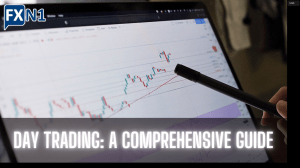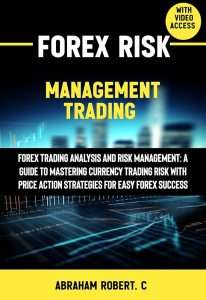A Beginner’s Guide to Forex Trading
Unlock the secrets of forex trading! This comprehensive guide simplifies complex market dynamics, equipping beginners with the knowledge and strategies for successful trading. Start your forex journey today!
Forex trading, the global exchange of currencies, can seem daunting at first. It involves intricate market dynamics and requires careful planning. However, with a structured approach and diligent learning, beginners can successfully navigate this exciting financial landscape. This comprehensive guide will equip you with the essential knowledge and strategies to embark on your forex trading journey.
Understanding the Forex Market
The foreign exchange market (forex or FX) is a decentralized, global marketplace where currencies are traded. Unlike traditional stock markets with centralized exchanges, forex operates 24 hours a day, five days a week, across various global financial centers. This continuous trading environment presents both opportunities and challenges for traders. Understanding the market’s structure and dynamics is crucial for success.
Major Currency Pairs and Their Influence
Forex trading primarily involves trading currency pairs. These pairs represent the value of one currency relative to another. Major pairs, like EUR/USD (Euro/US Dollar) and USD/JPY (US Dollar/Japanese Yen), are highly liquid and experience significant trading volume. Minor and exotic pairs offer different risk-reward profiles. The relative strength and weakness of these currencies are influenced by various economic factors, including interest rates, inflation, political stability, and global events.
Understanding Leverage and Margin
Leverage is a key aspect of forex trading, allowing traders to control larger positions with a smaller initial investment. While leverage amplifies potential profits, it also significantly increases risk. Margin is the amount of capital a trader must deposit to open and maintain a position. Understanding the relationship between leverage and margin is crucial for risk management.
Essential Steps to Start Forex Trading
Embarking on your forex trading journey requires a methodical approach. This section outlines the essential steps to get started.
1. Education and Research
Thorough education is paramount. Begin by learning the fundamentals of forex trading, including technical and fundamental analysis. Understand chart patterns, indicators, economic calendars, and geopolitical events. Numerous online resources, books, and courses can provide the necessary knowledge base. Continuous learning is essential for staying ahead in this dynamic market.
2. Choosing a Forex Broker
Selecting a reputable and regulated forex broker is crucial. Consider factors such as regulatory compliance, trading platform features, spreads (the difference between the bid and ask price), commissions, and customer support. Review broker reviews and compare offerings before making a decision. Ensure the broker is regulated by a recognized financial authority to protect your funds.
3. Developing a Trading Plan
A well-defined trading plan is the cornerstone of successful forex trading. This plan should outline your trading goals, risk tolerance, preferred trading strategies, and money management rules. It should also include clear entry and exit points for trades, stop-loss orders to limit potential losses, and take-profit orders to secure profits. Regularly review and adjust your plan as your experience grows.
4. Practicing with a Demo Account
Before risking real capital, practice with a demo account. Most forex brokers offer demo accounts that allow you to trade with virtual money. This is a risk-free environment to test your strategies, refine your skills, and gain experience without financial repercussions. Use this opportunity to familiarize yourself with the trading platform and develop your trading discipline.
5. Risk Management Strategies
Effective risk management is paramount in forex trading. Never risk more than you can afford to lose. Implement stop-loss orders to limit potential losses on each trade. Diversify your portfolio across different currency pairs to reduce overall risk. Regularly monitor your positions and adjust your risk management strategy as needed; Emotional discipline is key; avoid impulsive decisions based on fear or greed.
Advanced Forex Trading Techniques
Once you have a solid foundation in basic forex trading, you can explore more advanced techniques.
Technical Analysis
Technical analysis involves using charts and indicators to identify trading opportunities. It focuses on historical price movements to predict future price trends. Common technical analysis tools include moving averages, relative strength index (RSI), and candlestick patterns. Mastering technical analysis requires practice and experience.
Fundamental Analysis
Fundamental analysis focuses on evaluating economic and political factors that influence currency values. It involves analyzing economic data, such as inflation rates, interest rates, and GDP growth, to identify potential trading opportunities. Understanding global events and their impact on currency markets is crucial for fundamental analysis.
Scalping
Scalping is a short-term trading strategy that aims to profit from small price fluctuations. Scalpers typically hold positions for a few seconds or minutes, aiming for quick profits. This high-frequency trading strategy requires quick reflexes and a deep understanding of market dynamics.
Swing Trading
Swing trading involves holding positions for several days or weeks, aiming to capitalize on price swings. Swing traders use both technical and fundamental analysis to identify potential entry and exit points. This strategy requires patience and discipline.
Essential Tools and Resources for Forex Traders
Several tools and resources can significantly enhance your forex trading experience.
Trading Platforms
A robust trading platform is essential for executing trades and analyzing market data. Most forex brokers offer proprietary platforms with advanced charting tools, technical indicators, and order management capabilities. Choose a platform that suits your trading style and technical skills.
Economic Calendars
Economic calendars provide schedules of upcoming economic data releases, such as inflation reports and interest rate decisions. These events can significantly impact currency values, creating potential trading opportunities. Staying informed about economic events is crucial for informed decision-making.
News and Market Analysis
Stay updated on global news and market analysis. Reputable financial news sources provide insights into market trends and potential risks. Understanding geopolitical events and their impact on currency markets is crucial for successful forex trading.
Common Mistakes to Avoid in Forex Trading
- Overtrading: Avoid making too many trades, especially when you are still learning. Focus on quality over quantity.
- Ignoring Risk Management: Never trade without a well-defined risk management strategy. Always use stop-loss orders.
- Emotional Trading: Avoid making impulsive decisions based on fear or greed. Stick to your trading plan.
- Lack of Discipline: Discipline is crucial for successful forex trading. Follow your trading plan consistently.
- Insufficient Research: Thorough research is essential before making any trading decisions. Understand the market dynamics.
Building a Successful Forex Trading Career
Building a successful forex trading career requires dedication, discipline, and continuous learning. Start with a solid foundation of knowledge, practice with a demo account, and develop a well-defined trading plan. Manage your risk effectively, and consistently review and adapt your strategies. Remember that forex trading involves inherent risks, and consistent profitability is not guaranteed.
Successful forex traders often possess a unique blend of analytical skills, emotional control, and adaptability. They are able to analyze market trends, manage risk effectively, and adapt their strategies to changing market conditions. Moreover, they understand that continuous learning and improvement are essential for long-term success. They regularly review their performance, identify areas for improvement, and refine their trading strategies accordingly.
The forex market is dynamic and complex, constantly evolving in response to global events and economic indicators. Staying informed about market trends, economic data, and geopolitical events is crucial for successful trading. Utilizing reliable news sources, economic calendars, and market analysis tools will enhance your understanding of market dynamics and provide valuable insights for informed decision-making.
Ultimately, the path to successful forex trading is paved with consistent effort, meticulous planning, and a commitment to lifelong learning. By combining knowledge, discipline, and adaptability, you can increase your chances of achieving your financial goals in the exciting world of currency exchange.
Remember, forex trading is not a get-rich-quick scheme. It requires patience, perseverance, and a willingness to learn from both successes and failures. By adhering to a well-defined trading plan, managing risk effectively, and continuously refining your strategies, you can increase your chances of long-term success in the forex market.







